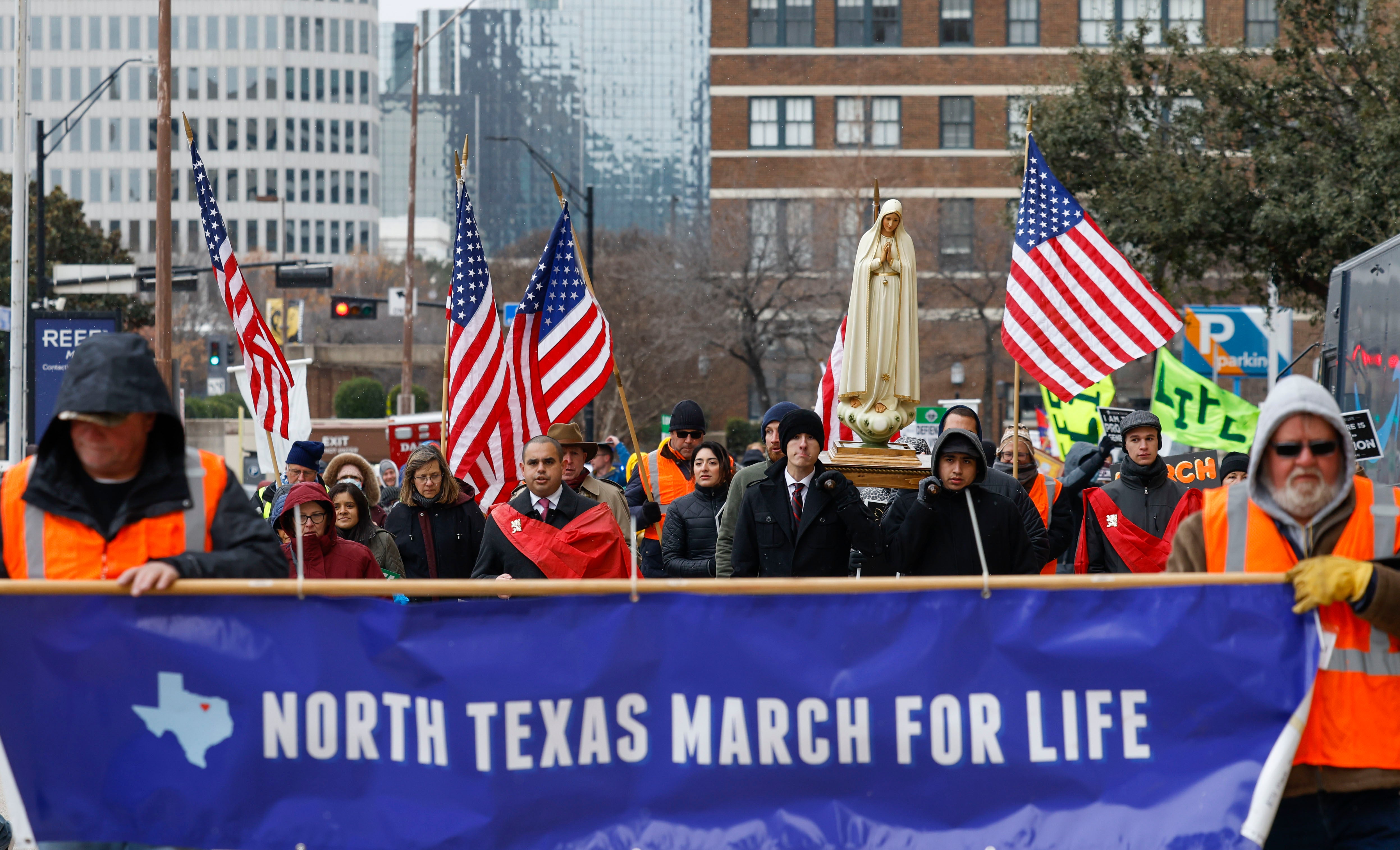Abortions in Texas fell 60% in 1st month under new limits
Abortions in Texas fell by 60% in the first month under the most restrictive abortion law in the U.S. in decades

Your support helps us to tell the story
From reproductive rights to climate change to Big Tech, The Independent is on the ground when the story is developing. Whether it's investigating the financials of Elon Musk's pro-Trump PAC or producing our latest documentary, 'The A Word', which shines a light on the American women fighting for reproductive rights, we know how important it is to parse out the facts from the messaging.
At such a critical moment in US history, we need reporters on the ground. Your donation allows us to keep sending journalists to speak to both sides of the story.
The Independent is trusted by Americans across the entire political spectrum. And unlike many other quality news outlets, we choose not to lock Americans out of our reporting and analysis with paywalls. We believe quality journalism should be available to everyone, paid for by those who can afford it.
Your support makes all the difference.Abortions in Texas fell by 60% in the first month under the most restrictive abortion law in the U.S. in decades, according to new figures that for the first time reveal a full accounting of the immediate impact.
The nearly 2,200 abortions reported by Texas providers in September came after a new law took effect that bans the procedure once cardiac activity is detected, usually around six weeks of pregnancy and without exceptions in cases of rape or incest. The figures were released this month by the Texas Health and Human Services Commission.
In August, there had been more than 5,400 abortions statewide. State health officials said more data will be released on a monthly basis.
The numbers offer a fuller picture of the sharp drop in patients that Texas doctors have described in their clinics over the past five months, during which time courts have repeatedly allowed the restrictions to stay in place. It has left some Texas patients traveling hundreds of miles to clinics in neighboring states or farther, causing a backlog of appointments in those places.
The Texas law conflicts with landmark U.S. Supreme Court rulings that prevent a state from banning abortion early in pregnancy, but was written in a way that has essentially outmaneuvered those precedents.
Under the law, any private citizen is entitled to collect $10,000 or more if they bring a successful lawsuit against someone who performed or helped a woman obtain an abortion after the limit — which opponents have condemned as a bounty. So far, no anti-abortion supporters have filed any suits.
With few options left, Texas abortion providers have acknowledged the law is likely to stay on the books for the foreseeable future.
It comes as the U.S. Supreme Court has signaled a willingness to weaken or reverse the landmark Roe v. Wade precedent in a ruling that is expected later this year.